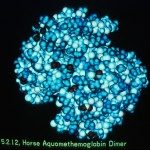Link to Pubmed [PMID] – 33881595
Link to DOI – 10.1007/s00249-021-01528-2
Eur Biophys J 2021 May; 50(3-4): 453-460
As the scientific community strives to make published results more transparent and reliable, it has become obvious that poor data reproducibility can often be attributed to insufficient quality control of experimental reagents. In this context, proteins and peptides reagents require much stricter quality controls than those routinely performed on them in a significant proportion of research laboratories. Members of the ARBRE-MOBIEU and the P4EU networks have combined their expertise to generate guidelines for the evaluation of purified proteins used in life sciences and medical trials. These networks, representing more than 150 laboratories specialized in protein production and/or protein molecular biophysics, have implemented such guidelines in their respective laboratories. Over a one-year period, the network members evaluated the contribution these guidelines made toward obtaining more productive, robust and reproducible research by correlating the applied quality controls to given samples with the reliability and reproducibility of the scientific data obtained using these samples in follow-up experiments. The results indicate that QC guideline implementation facilitates the optimization of the protein purification process and improves the reliability of downstream experiments. It seems, therefore, that investing in protein QC might be advantageous to all the stakeholders in life sciences (researchers, editors, and funding agencies alike), because this practice improves data veracity and minimizes loss of valuable time and resources. In the light of these conclusions, the network members suggest that the implementation of these simple QC guidelines should become minimal reporting practice in the publication of data derived from the use of protein and peptide reagents.

